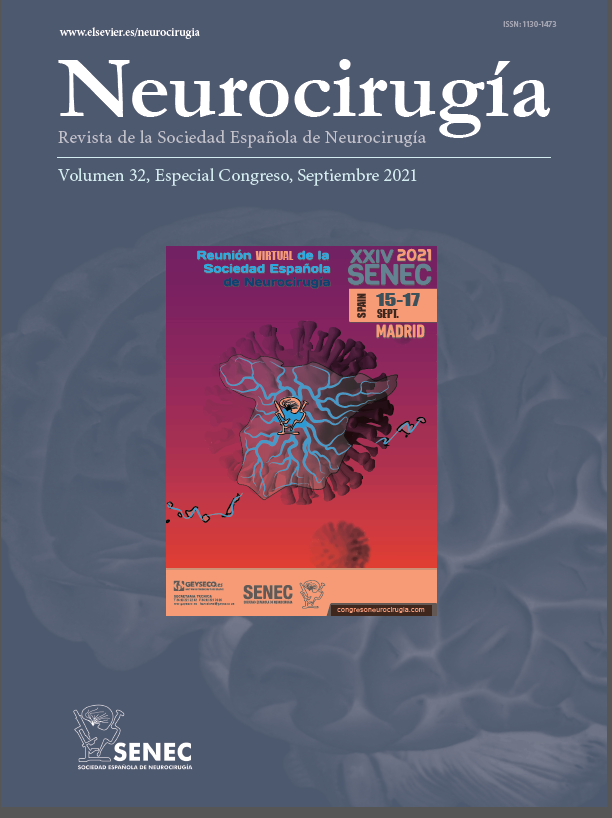C-0331 - MULTICENTRIC POSTERIOR FOSSA GLIOBLASTOMA MULTIFORME IN THE ELDERLY MIMICKING MULTIPLE METASTASES: CASE REPORT AND LITERATURE REVIEW
Neurocirugía, Hospital Universitario Puerta de Hierro-Majadahonda, Madrid, Spain. Radiodiagnóstico, Hospital Universitario Puerta de Hierro-Majadahonda, Madrid, Spain.
Objectives: Posterior fossa glioblastoma comprises less than 4% of all grade IV gliomas. Moreover, multicentric lesions in this location and in the elderly are hardly ever described. We describe an unusual case of an elderly patient with multiple posterior fossa lesions diagnosed of multicentric glioblastoma multiforme.
Methods: A 73 year-old Caucasian male, with previous history of stage I prostate cancer treated in 2018, consulted due to repeated vomits and gait imbalance in the last 2 weeks. Dexamethasone was the only drug to control vomits. Magnetic resonance image showed four posterior fossa lesions (two in the right cerebellum hemisphere, and two surrounding the pons and the medulla oblongata). Whole-body computed tomography and positron emission tomography were both negative. Differential diagnosis between metastases of unknown origin, primary brain lymphoma and glioblastoma was made.
Results: Surgical excision of the most superficial lesion was achieved. A second large and deeper lesion in contact with the medulla oblongata was not excised due to patient’s choice. Histological analysis revealed a multicentric primary glioblastoma multiforme of the posterior fossa. Recovery was uneventful, except for the patient’s dependence to dexamethasone to control vomits and low platelets level.
Conclusions: We describe the characteristics of an unusual case of multicentric posterior fossa glioblastoma, with the aim to point out the features of this lesion in elderly patients under suspicion of metastases. Deep lesions in contact with the medulla oblongata may be associated with short clinical course.







